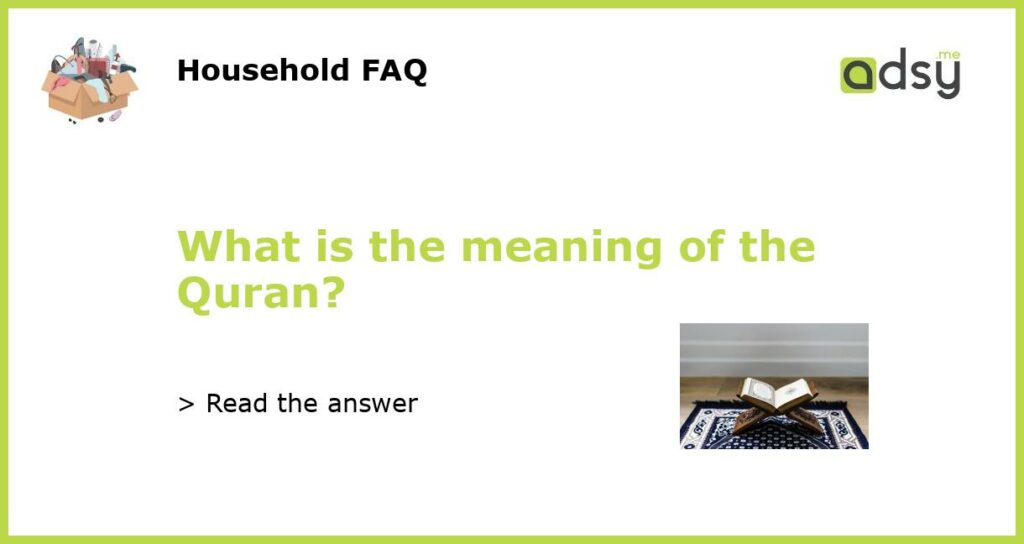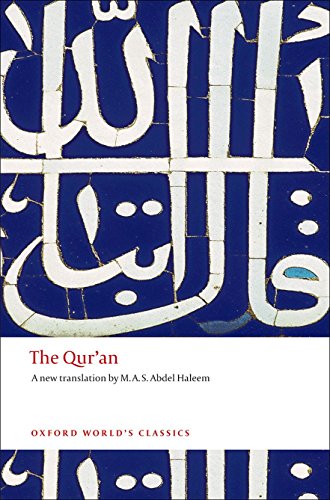Understanding the Meaning of the Quran
The Quran is the holy book of Islam and holds deep significance for millions of Muslims around the world. It is believed to be the word of God as revealed to the Prophet Muhammad over a period of twenty-three years. To grasp the true meaning of the Quran, it is essential to explore its origins, its linguistic and literary aspects, as well as its religious and moral teachings.
Origins and Revelation of the Quran
The Quran is believed to have been revealed to the Prophet Muhammad through the angel Gabriel, who transmitted the divine message in Arabic. Muslims regard the Quran as God’s final revelation, complementing and confirming the messages of previous prophets, such as Moses and Jesus.
The revelation of the Quran took place in the 7th century A.D. in the Arabian Peninsula, specifically in modern-day Saudi Arabia. The Prophet Muhammad began receiving revelations at the age of 40 and continued to receive them until his death. These revelations were recorded by his companions and eventually compiled into the book known as the Quran.
Linguistic and Literary Aspects of the Quran
The Quran is written primarily in classical Arabic, which was the predominant language in the Arabian Peninsula during the time of its revelation. Arabic is considered to be a highly structured language that allows for precise expression and rich metaphors.
The literary style of the Quran is often described as unparalleled in its eloquence and rhetorical power. It is intricately structured, containing prose, poetry, and rhetorical devices such as repetition, parallelism, and imagery. The Quran also employs various literary genres, including historical accounts, parables, and moral teachings.
Religious and Moral Teachings of the Quran
The Quran covers a wide range of topics, addressing issues related to faith, worship, morality, social conduct, and guidance for personal and communal life. It provides Muslims with guidelines for living a righteous and fulfilling life, aiming to establish a just and harmonious society.
The Quran emphasizes the belief in one God (Allah) and the importance of faith, which is considered the foundation of a Muslim’s relationship with God. It also advocates for acts of worship, such as prayer, fasting, and charity, as means of spiritual growth and connection with the divine.
The Quran promotes ethical values and outlines principles of justice, compassion, forgiveness, and righteousness. It condemns vices such as dishonesty, injustice, and cruelty, while encouraging virtues such as honesty, kindness, and humility.
Interpreting the Meanings of the Quran
Interpreting the meanings of the Quran requires a deep understanding of the Arabic language, the historical context of its revelation, and the guidance of scholars who have specialized knowledge in Islamic theology and jurisprudence.
Islamic scholars approach the interpretation of the Quran through various methods, including linguistic analysis, historical context, and reliance on the teachings and practices of the Prophet Muhammad. They also consider the interpretations of previous scholars and work within the framework of established Islamic principles.
It is important to note that interpretations of the Quran can vary among different scholars and schools of thought. However, certain core principles and teachings are considered universally agreed upon by the majority of Muslims.
In conclusion, the meaning of the Quran encompasses its origins as a divine revelation to the Prophet Muhammad, its linguistic and literary aspects, and its religious and moral teachings. Understanding the Quran requires a holistic approach that combines linguistic analysis, historical context, and guidance from Islamic scholars. It serves as a guidebook for Muslims, providing guidance on matters of faith, worship, morality, and social conduct.






